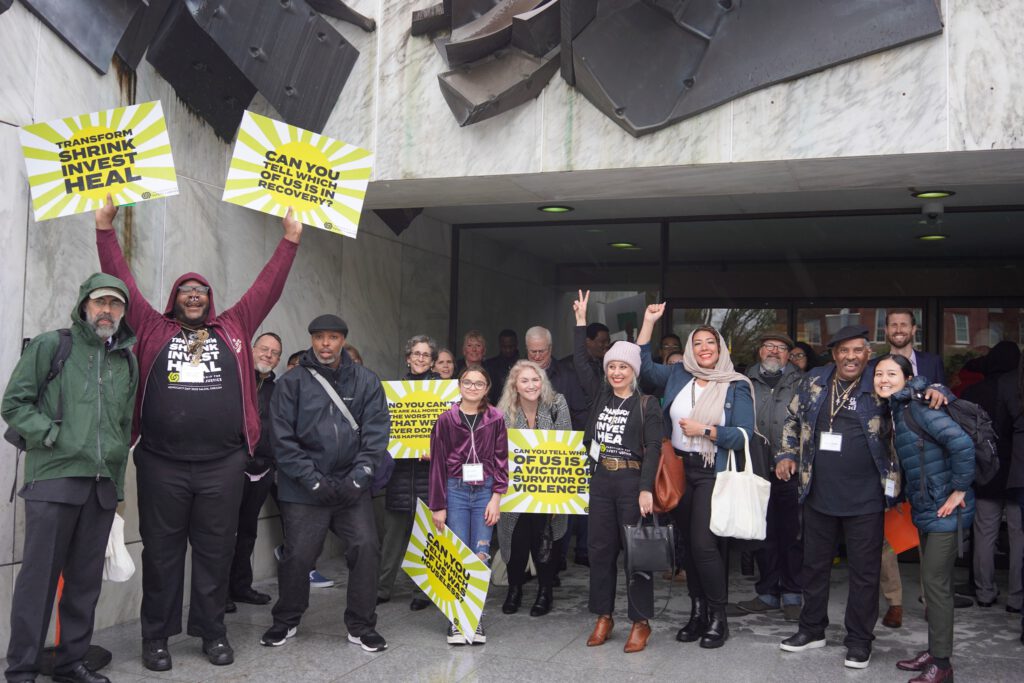Our 2025 session wrap-up
See what we accomplished together and where we have more work to do.

Salem, Ore. — Up to 5,000 more Oregonians on parole, probation, and community supervision will soon qualify for earned discharge, an incentive-based process that allows eligible people to earn up to 50% off of the length of supervision if they are successful and meeting their case plan goals.
Shannon Wight, Deputy Director at Partnership for Safety and Justice, said that the policy is overdue in light of historic increases in supervision rates that ballooned across the country along with 1980s-era, tough-on-crime sentencing laws. The ineffective sentencing schemes led the United States to becoming the most incarcerated country in the world while also being the least safe, particularly for communities of color who are disproportionately ensnared by both mass incarceration and mass supervision.
SB 581 passed with bipartisan support in the Oregon Senate, and it passed yesterday out of the House. It now heads to the Governor who is expected to sign the bill.
According to Wight, “When community supervision was first envisioned, it was seen as an alternative to incarceration or as a way to support people who are transitioning back into their communities. Today community supervision is used in addition to incarceration. It keeps successful people tied to the system, unnecessarily and often harmfully. It’s destabilizing to make people take time off of work for meetings at a county office. We should be building community safety by building on people’s success. Expanding earned discharge brings Oregon closer to that goal.”
Billy Anfield, Advocacy Coordinator at Central City Concern’s Flip the Script, is part of the Transforming Justice Coalition that developed SB 581. His connection to this issue is both professional and personal:
“As someone with lived experience being on supervision for quite a long time, what I learned about myself was that after three years of being grounded in my recovery, sustaining employment, being self-sufficient, and reunited with family, that supervision seemed to be excessive and no longer needed. It felt as though I had an invisible ball and chain around my neck prepared to pull me down regardless of my achievements. Today I work with men and women who have reached the same milestones I did, and they remain on supervision, even after four or five years. Supervision should reward people for their hard work and success, not hold them hostage by way of an extended sentence.”
Jeremiah Stromberg is the Assistant Director of the Community Corrections Division at the Department of Corrections. According to Stromberg, “Incentive-based approaches to public safety is what we find to be most successful. If people have maximized the benefits, if we have provided them with everything we can, and we are seeing success, there is no reason to keep them on supervision. We have seen more than 8000 individuals end supervision early since 2015, and they have a 91% success rate in not returning to jail, probation, or prison after being discharged early. Those that perform well continue to do so after the criminal justice system is no longer in their lives.”
SB 581 expands HB 2172 (2021), which made the earned discharge process available to people on probation, parole, or community supervision who were convicted in 2022 or later. SB 581 creates consistency by expanding the option to people convicted in 2021 or earlier.
“If our system defines a prison sentence as accountability, then we have to think carefully about the role that community supervision plays after that sentence,” said Wight. “It’s time to stop pretending that it’s acceptable to layer punishments on top of punishments. After a sentence is served, and a person is successful, our goal should be to remove every barrier to their success. People with lived experience, people who run community corrections, and criminal justice advocates all agree that earned discharge is key to getting there.”
Partnership for Safety & Justice is Oregon’s leading public safety and criminal justice policy reform organization. For over 23 years, our work has advanced state and local solutions that ensure accountability, equity, and healing for people convicted of crime, crime survivors, and the families and communities of both.
###